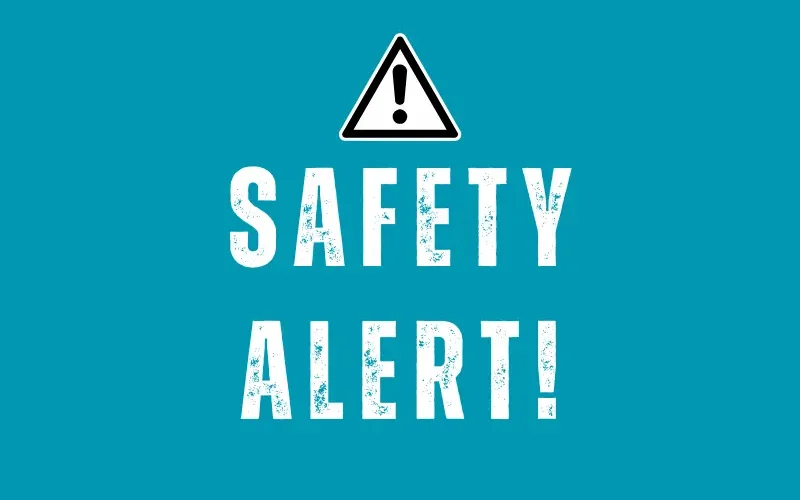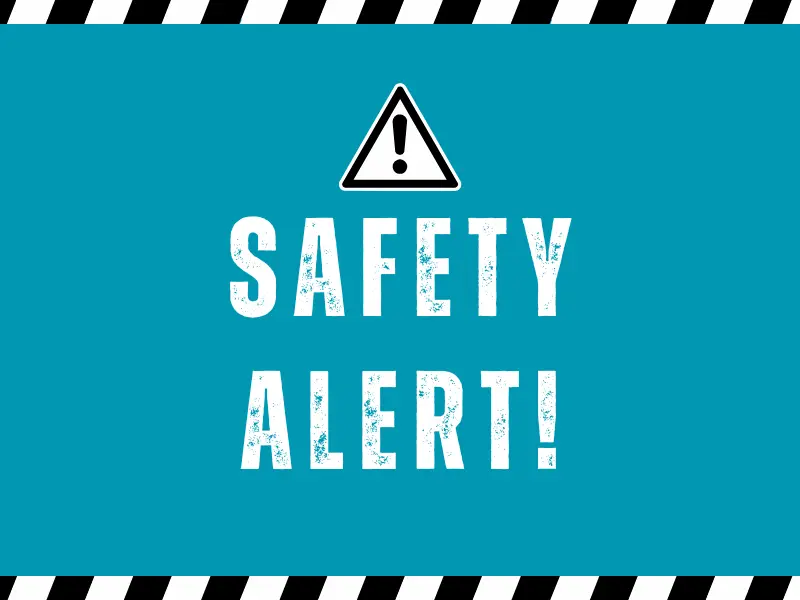Clearwater, FL — Hurricane Risks and Idle Cranes: Liability Questions After Tampa Residents Voice Fears
20Aug
Clearwater, FL (August 20th, 2025) – When residents in Tampa recently raised alarms about an idle crane looming over their neighborhood, it wasn’t just an abundance of caution. They were pointing to a real danger. With hurricane season already underway, heavy equipment left unsecured can become a serious hazard for people living and working nearby.

Families in Clearwater and across Florida know that storms can turn everyday objects into projectiles. A construction crane is different: its sheer size means a collapse could damage buildings, crush vehicles, or cause life-changing injuries. Questions quickly follow: Who is responsible if that happens? What rights do victims have? And how does Florida law treat cases where heavy machinery becomes a threat during a storm?
If a crane or other storm-related hazard causes injury in Clearwater, the premises liability lawyers at Light & Wyatt Law Group can help protect your rights. Call 727-499-9900 today.
Table of Contents
Why Idle Cranes Pose a Unique Threat in Florida
Florida’s landscape is dotted with cranes thanks to nonstop development. In downtown Tampa alone, dozens of high-rise projects are under construction at any given time. Cranes can stay in place for months, sometimes longer than the active work itself.
During hurricane season, this creates a perfect storm of risks. High winds can topple or destabilize equipment if it isn’t properly secured. Even if the crane doesn’t collapse entirely, falling debris or swinging parts can strike homes, businesses, or pedestrians.
The concern isn’t hypothetical. Florida has seen crane accidents in past storms. Nationally, there are documented cases of cranes collapsing in strong winds, leaving behind a trail of property damage, injuries, and lawsuits. The recent worry from Tampa residents underscores a growing unease: what happens when equipment is left idle, with no clear plan to secure it before a storm?
Florida’s New Crane Safety Law
Until recently, Florida had no statewide rules on how cranes should be secured before a hurricane. Some local governments tried to regulate safety practices, but legal challenges often tied their hands. That changed in 2024 with the passage of Senate Bill 180.
This law now requires crane operators to follow uniform steps when a storm is approaching:
- Retract booms so they present less wind resistance.
- Switch tower cranes into weathervane mode so they can pivot with the wind instead of snapping under pressure.
- Disconnect power supplies at least 24 hours before expected landfall.
The law took effect in 2025, just in time for this hurricane season. For contractors and property owners in Clearwater, it’s no longer just best practice, it’s the law. Failure to follow these rules can lead to fines, license suspension, and liability if an accident occurs.
How Premises Liability Law Applies to Idle Cranes
At its core, premises liability in Florida is about responsibility. Property owners and those in control of a site have a legal duty to keep conditions reasonably safe for others. That duty extends beyond just slip-and-fall hazards inside a store. It can include large equipment, construction sites, and any dangerous condition a reasonable person should address.
Here’s how it connects to cranes:
- If a crane is left unsecured before a storm, and it collapses onto a nearby property, the owner of the site could face liability.
- If workers, residents, or passersby are injured, the legal claims could include medical costs, lost wages, and pain and suffering.
- Even if the property owner wasn’t directly operating the crane, liability can attach if they had control over the site or failed to ensure safety.
In short, leaving an idle crane unprepared isn’t just a construction oversight. It’s a potential premises liability case waiting to happen.
Who Could Be Held Responsible After a Collapse?
Florida law doesn’t limit liability to a single party. Depending on the circumstances, responsibility may be shared among:
- Property owners or developers who control the land where the crane sits.
- Contractors and crane operators who are hired to maintain or dismantle the equipment.
- Equipment manufacturers if a defect contributed to the failure.
Courts will often look at who had the most control, who ignored warnings, and whether laws like SB 180 were followed. For victims, this can mean multiple potential avenues to recover compensation. For property owners, it’s a reminder that you cannot delegate away safety duties.
Real-World Consequences of Crane Failures
The law isn’t abstract here. Crane accidents have led to tragic consequences across Florida and beyond.
In Fort Lauderdale, a crane collapse during a storm injured a driver when debris struck her vehicle. She later filed a multimillion-dollar lawsuit, claiming negligent operation and failure to secure the site. Cases like this show that courts take these incidents seriously, and that juries understand the stakes when heavy machinery is left in dangerous positions.
Even near misses matter. A swinging crane arm, falling counterweights, or collapsing scaffolding can cause property owners, neighbors, and insurance companies to face years of litigation. The cost isn’t just financial. It’s about disrupted lives and communities left on edge during an already stressful hurricane recovery.
Duties Don’t End When the Storm Passes
One misconception is that once the hurricane moves on, responsibility ends. Florida law makes it clear that property owners and contractors have an ongoing duty to inspect, repair, and warn about hazards before reopening a site or inviting others onto the property.
If an idle crane survives the storm but is weakened, it may still pose a risk. Allowing workers or visitors near it without repairs or warnings could create additional liability. For neighbors, a damaged crane that leans precariously over their homes remains a threat until it’s dismantled or secured.
In such cases, premises liability may extend beyond the moment of collapse. The duty to act reasonably continues long after the winds have died down.
What This Means for Clearwater Residents and Workers
For those living or working near construction sites, the concerns voiced in Tampa are relatable. If you notice a crane left unattended as a storm approaches, the risk is real.
If a collapse or debris fall causes injury or damage, you have legal rights. Premises liability law allows victims to pursue claims against negligent property owners, contractors, or others involved. These claims can cover medical treatment, lost income, repair costs, and the lasting emotional impact of surviving such an event.
The key is understanding that you don’t have to bear the burden alone. Florida law provides avenues for recovery when unsafe conditions cause harm.
Why Legal Experience Matters in Crane-Related Cases
Premises liability cases involving cranes are rarely simple. Multiple parties may be involved, from local developers to out-of-state contractors. Technical questions, like whether the crane was properly weathervaned or whether a structural defect contributed, require investigation and expert testimony.
An attorney experienced in Florida premises liability law can untangle these questions, identify responsible parties, and pursue compensation on behalf of injured clients. For property owners facing claims, legal guidance can mean the difference between fair resolution and years of litigation.
In Clearwater, where hurricanes and development intersect, having a clear understanding of your rights and responsibilities isn’t just helpful—it’s essential.
Protecting Your Rights After a Crane Collapse or Hurricane Hazard in Clearwater
The idle crane in Tampa is more than a neighborhood worry. It’s a symbol of the dangers that come when heavy equipment meets hurricane winds. For Clearwater residents, it’s a reminder that construction and storm safety are intertwined, and that legal responsibility follows closely behind.
Property owners and contractors must follow Florida’s new safety rules, prepare equipment well before storms, and stay vigilant afterward. Neighbors and workers have the right to expect reasonable care, and to hold parties accountable if that duty is ignored.
If you or someone you love is injured because of unsafe conditions on a property, the Clearwater premises liability attorneys at Light & Wyatt Law Group are here to help. Call us today at 727-499-9900 to discuss your rights.
